Yes, I know, you've missed them now, but since I have photos I thought I'd publish them.
The main attraction, the vast Neapolitan nativity scene made up of countless pieces of finely moulded and decorated ceramics, comes out every year.
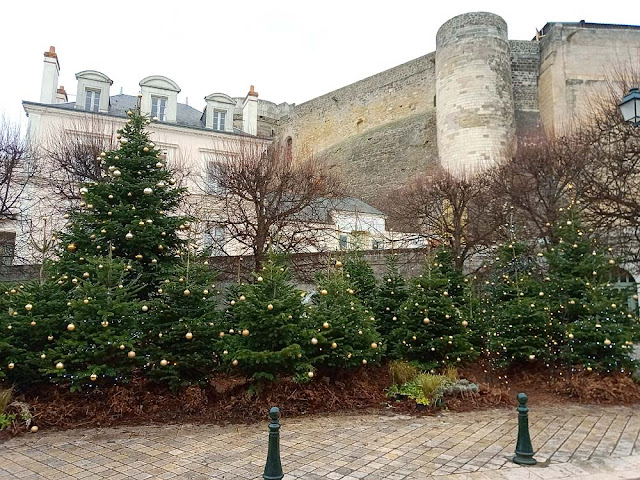 |
A grove of Christmas trees in Place Michel Debré.
|
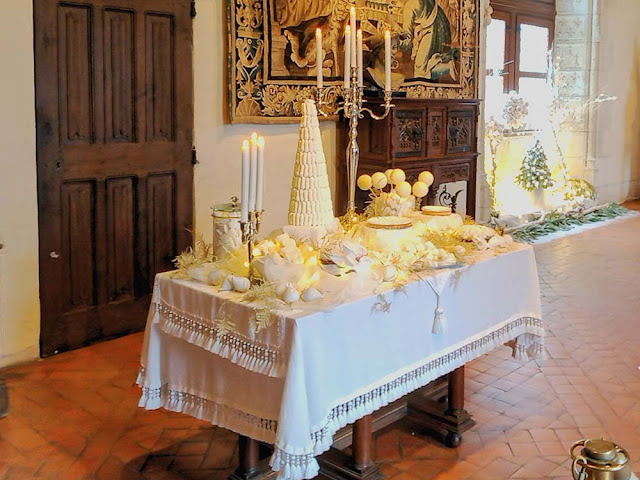 |
Renaissance style sugar confections made by Maison Bigot for the Chateau's Christmas display.
|
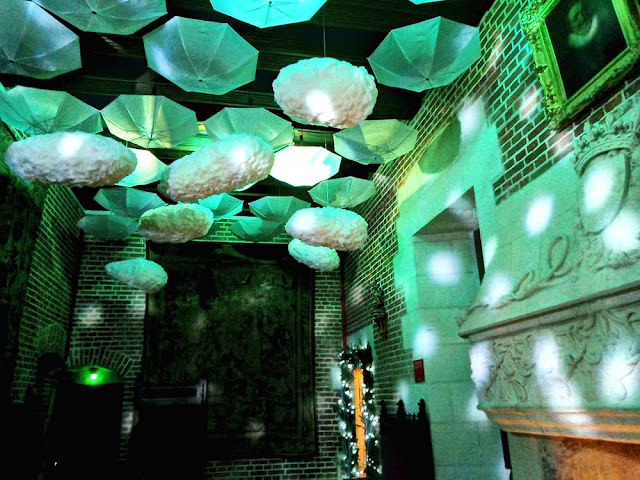 |
No...me neither...
|
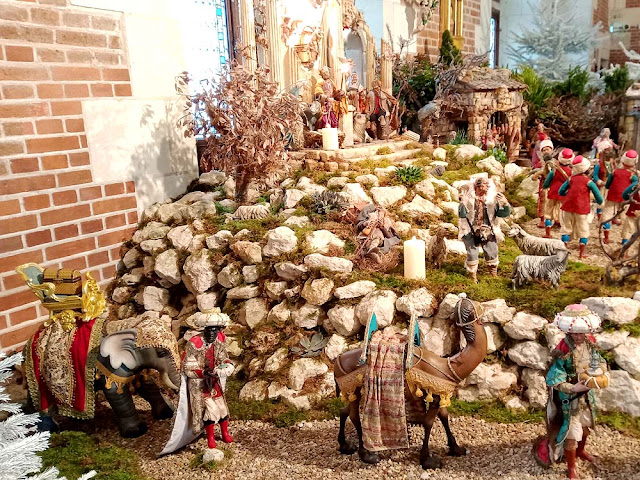 |
The Holy Family, the 'oriental' band, a shepherd and his sheep, and two of the three Kings.
|
 |
The Holy Family.
|
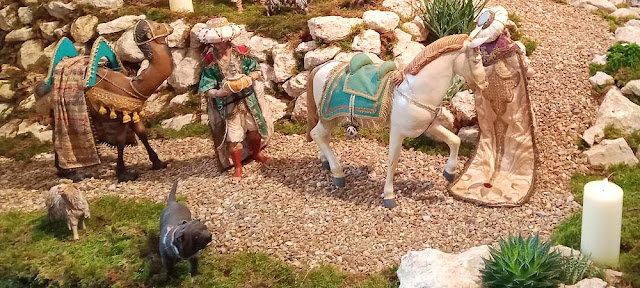 |
Two of the three Kings, a sheep and a mastiff.
|
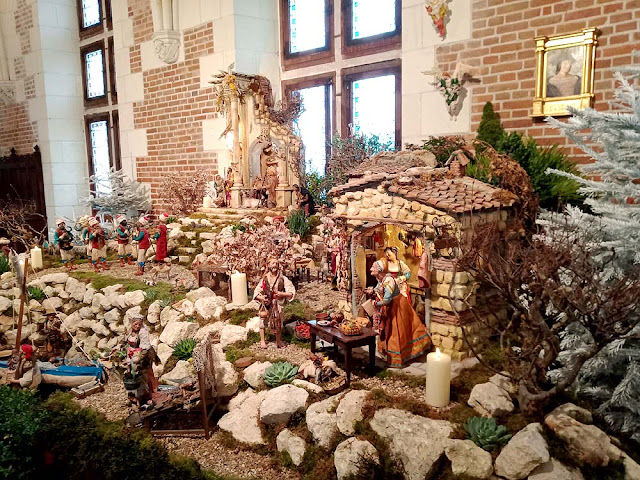 |
The Neapolitan nativity scene.
|
Neapolitan nativity figurines are still made and collected today, but their peak was in the second half of the 18th century. Each figure, piece of scenery or accessory may be made of several different materials, including glazed terracotta, wood, wire armatures wrapped in fibres, metal, wax and embroidered textiles. They are famous for their level of exquisite detail and are held upright by spikes on their feet pushed into a cork display base. The Amboise collection reflects the tradition of showing highly detailed scenes of working life around the actual nativity scene. Curiously, it is these foreground trades, merchants and working figures which are really the stars of the show, with the Holy Family receding into insignificance right at the back.








5 comments:
I wonder if those figurines are what we call santons de Provence?
chm: Well, these Neapolitan ones are sometimes referred to as santons in French, but never 'de Provence'. I thought the Provencal ones were smaller and often rude? But maybe I'm getting them mixed up with the Catalan ones.
I've just checked on the history of santons de provence. Clearly coming from a similar tradition as the Neapolitan ones, but not as big a thing until much later.
I live near Carpentras in Provence, and the santons are a very popular holiday tradition here. I've not seen rude ones. The tourist office in Carpentras puts up a huge santon display every year, always a bit different, with an entire village, all of the trades and agricultural traditions, herds of sheep, church, very interesting. It is about 2-3 meters wide and about 10 meters long, very impressive.
bonnie near carpentras
bonnie groves poppe: Yes I was getting mixed up with the Catalan ones.
Post a Comment